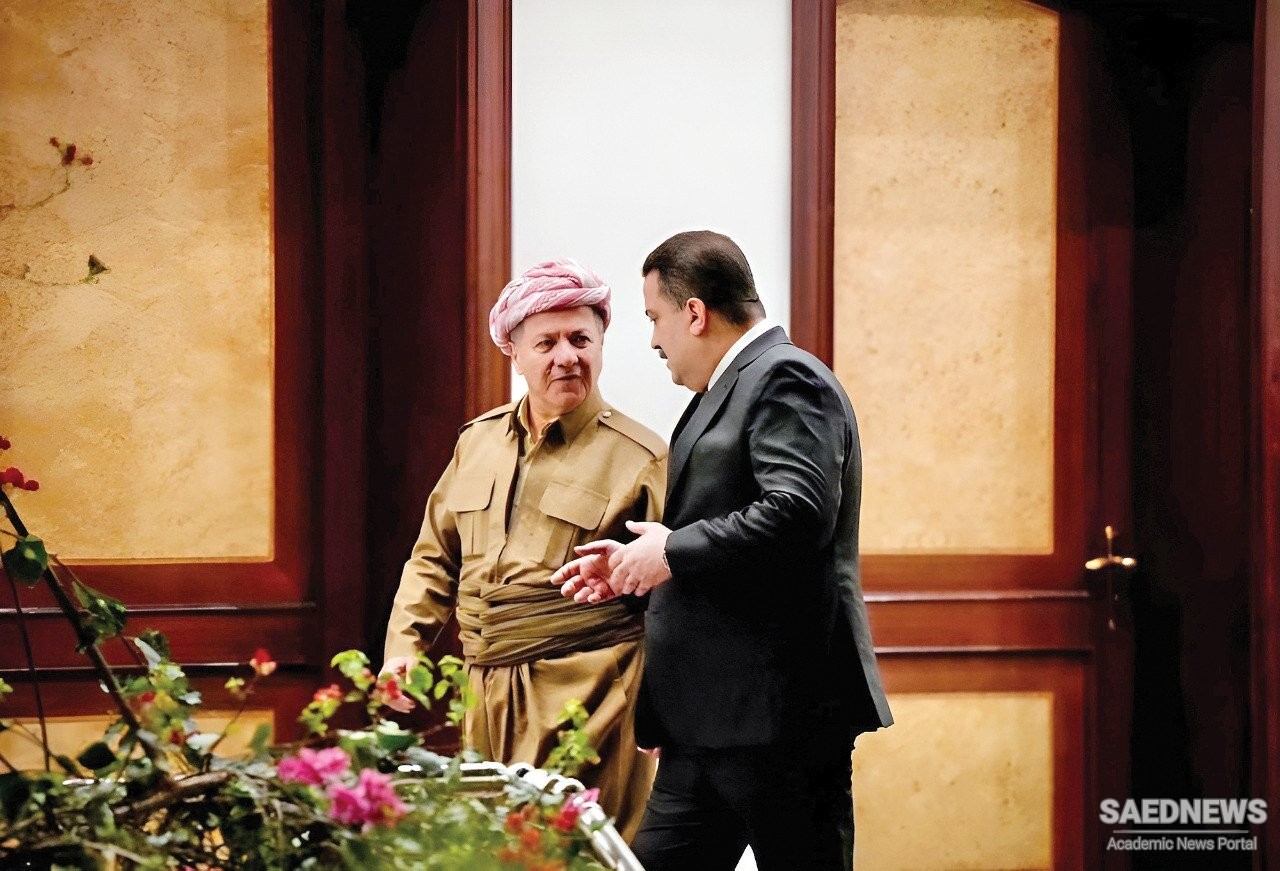A source has told the Tehran Times that a security committee met with Iraqi representatives on January 10, reminding them of Baghdad’s shortcomings in securing its borders with Iran. According to the source, Tehran warned Baghdad that it would have to take the matter into its own hands if the Arab government failed to address Iran’s concerns.
Additionally, Iran has purportedly reached out to Iraq's envoy to Tehran and the representative of the semi-autonomous Kurdistan region within the last 20 days, reiterating its escalating frustration with the prevailing and intolerable circumstances. "We told them that our patience is wearing thin,” the source said.
Early on Tuesday, Iran launched ballistic missiles targeted at Israeli espionage facilities situated in Erbil, northern Iraq. Iranian officials stated that Iran's actions were in compliance with international law, serving the aim of securing its borders. Article 51 of the UN Charter affirms the entitlement of nations to defend themselves, individually or collectively, in response to an armed assault.
The southeastern Iranian city of Kerman was rocked by two explosions early this month. The terrorist attacks, which resulted in the deaths of 94 civilians, were carried out by the Daesh terror group with additional investigations showing Israel’s involvement in the tragedy. Iran also targeted Daesh strongholds in Syria on Tuesday.
On March 19, 2023, Iran and Iraq formally ratified a security treaty. As part of this agreement, Iraq committed to preventing militant organizations from utilizing its territory in the Iraqi Kurdish region as a launchpad for cross-border attacks near Iran's borders. In September of the same year, Iraq publicly declared its compliance with the provisions outlined in the treaty. However, several months later, General Mohammad Bagheri, the chief of staff of Iran's armed forces, conveyed to Iraq's Interior Minister Abdul-Amir al-Shammari that Tehran still harbors concerns regarding the presence of anti-Iranian terrorist groups in the vicinity. It is believed that Iran has also expressed its deep apprehensions about the large presence of Israeli spy agents in the Kurdistan region several times.
Local authorities closed targeted site for several hours
The Tehran Times understands that local authorities in Iraq's semi-autonomous Kurdistan region obstructed the access of emergency vehicles to the affected area in Erbil for at least 4 hours. This action likely facilitated the removal of evidence and the cleansing of the site before permitting cameras to capture the aftermath.
Iran says the compound pinpointed by its precision-guided missiles served as a key hub for Mossad operatives involved in orchestrating attacks and carrying out targeted assassinations within Iran. The site, now obliterated by the missile strikes, was linked to a thwarted drone assault on a military facility in the central Iranian city of Isfahan.
While officials in Iraq's Kurdistan region maintained that the location was nothing more than a private villa, footage subsequent to the attack suggested otherwise. The structure exhibited multiple layers of fortified concrete; a feature distinct from other surrounding buildings. Moreover, the footage unveiled the presence of two heavily reinforced underground levels suspected to have been utilized for the storage of intelligence equipment. The villa's proximity to the U.S. consulate in Erbil is believed to have provided additional security cover for the Mossad center.
At least 3 high-ranking Mossad agents were eliminated during the offensive. One of them, known as “Michelle”, was a woman with dual Israeli and British citizenship, but had traveled to Iraq with her Belgian passport.
Another person killed during the strike was a woman of Filipino descent, who stayed in the residence under the guise of a maid. She also owned an Israeli passport.
Reason for Iraq’s strong response
Iraq's governing authorities are reportedly facing pressure from the United States to emphasize Iran's actions, potentially as a means to divert attention from Israel's faltering campaign in the embattled Gaza Strip. Despite Iran's prior direct attacks in northern Iraq, Iraq’s federal government has opted to recall its representative to Tehran for discussions, something it hasn’t done before. The increased pressure on Iraqi officials also indicates the significance of the individuals liquidated during the attack.


 Pakistan Claims Responsibility for Missile Attacks to Southeast Iran with 7 Fatalities
Pakistan Claims Responsibility for Missile Attacks to Southeast Iran with 7 Fatalities














































